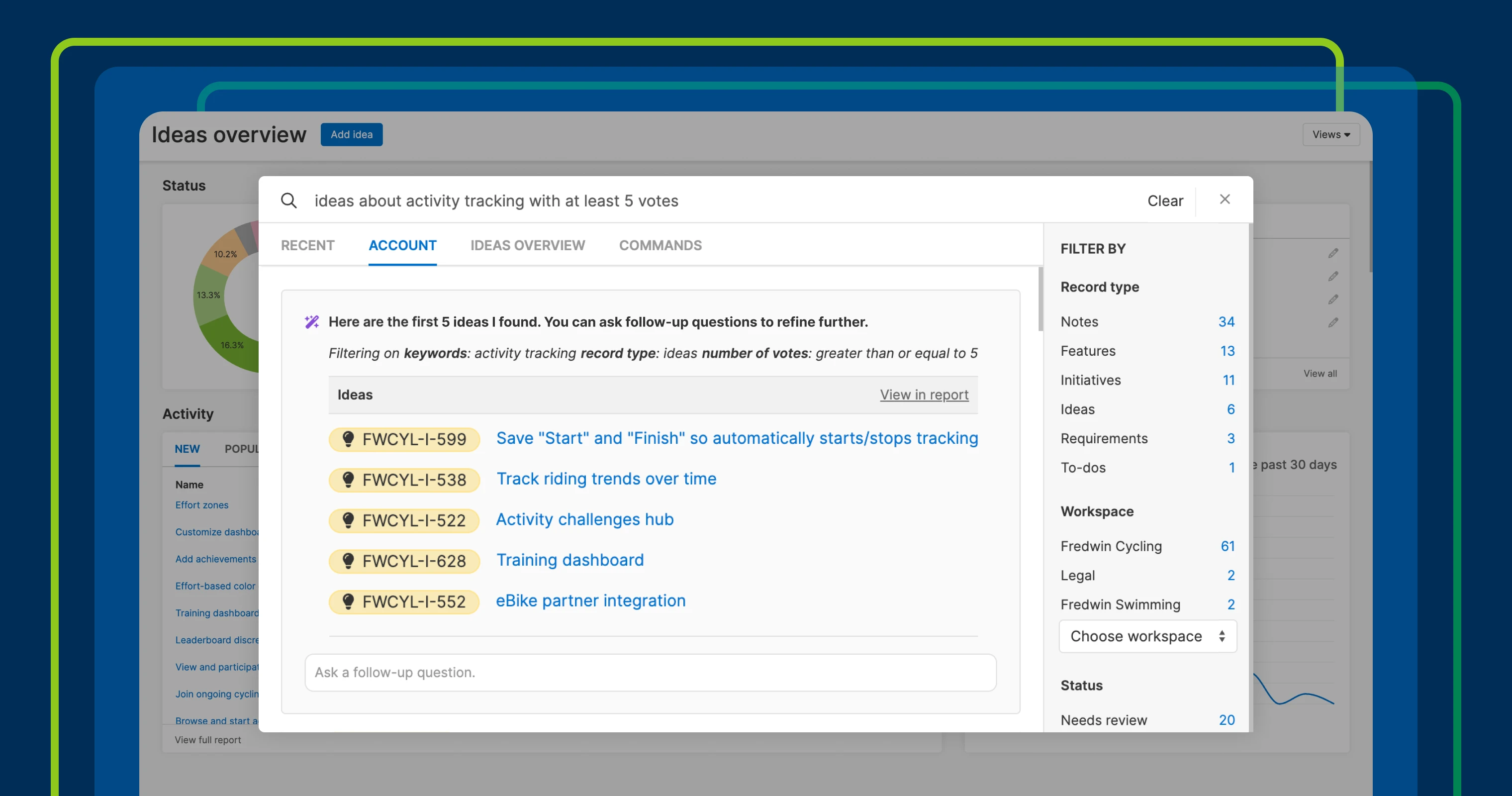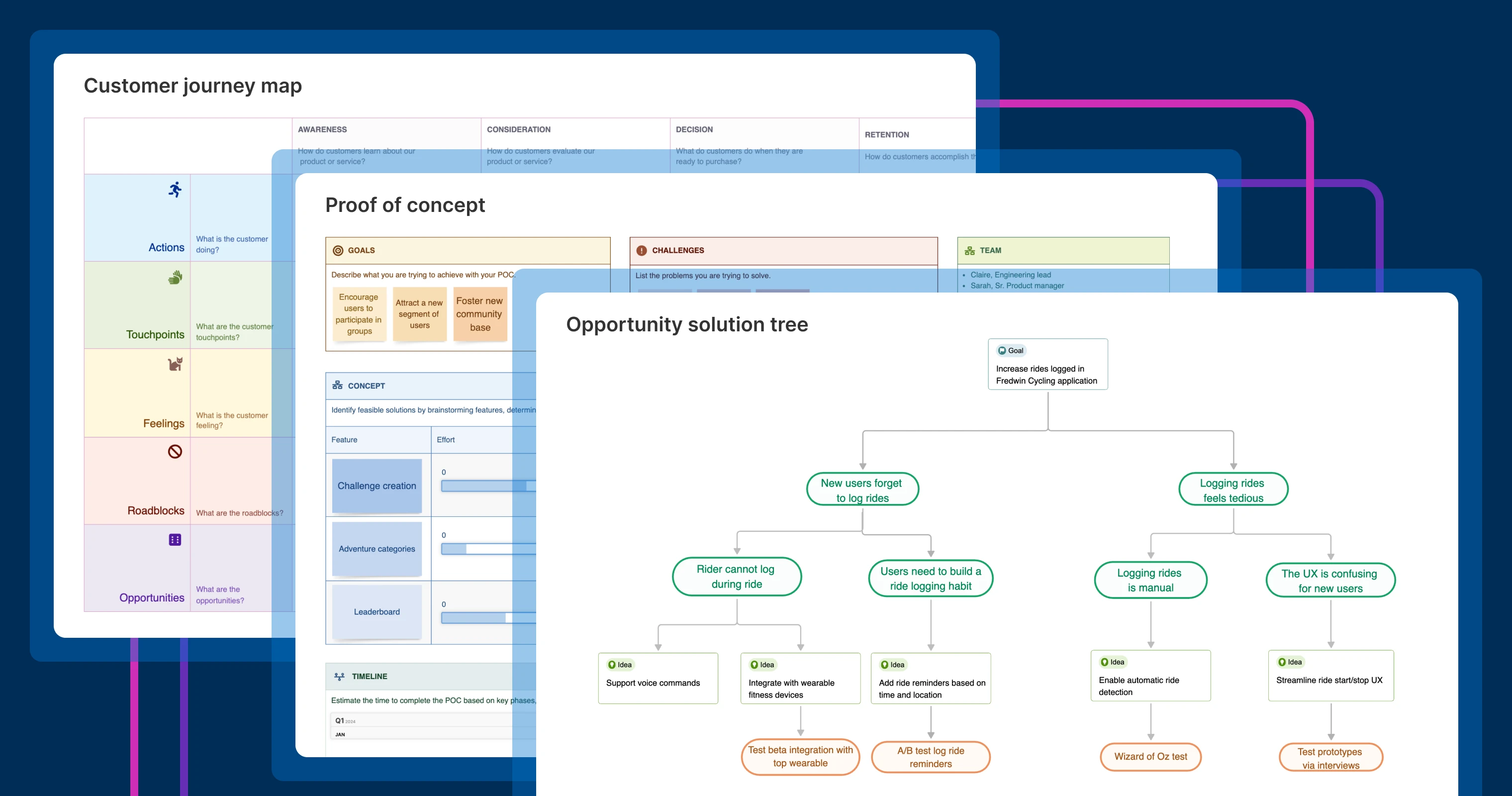
Amy Woodham takes a break to accomplish some meaningful work at an Aha! onsite | Photo by Jodi B Photography
Can product managers be replaced by AI?
AI is coming for the product managers. At least, that is what a few folks with big opinions and active Substacks would have you believe. I have skimmed a few and have to say that most feel like a lot of bold proclamations without much insight into what good product managers really do. Some people think you are less valuable than you are — and some of them likely have the ear of your CFO. From my vantage point, that is where the real dilemma lies.
Product management will continue to be a critical discipline at every forward-thinking organization (especially with AI-driven development and go-to-market activity) — assuming you can adapt and demonstrate your value.
Because if the Waters theory proves true (and we think it will), we are gearing up for an exponential explosion of new AI-generated software products flooding the market. And if you cannot zero in on where you bring the most value, you will miss opportunities to do the work that matters most — setting differentiated strategy for products that customers actually care about and will pay for.
An imbalance between impact and effort is where the risk of being replaced by a bot becomes a warranted concern. There is often little time to do the work you really care about that actually powers product organizations forward: strategy, discovery, roadmapping, and launches. These are high-impact areas that require effort and attention from real humans.
Product managers should not be concerned about being replaced by AI. Instead, focus on how you will deepen the value of the human-centric skills and instincts you bring.
Some of the work that consumes your day to day now will certainly be subsumed by AI, though (like high-level research, status updates, and writing support). As I shared earlier, we will also see AI play an even larger role in the actual designing and coding of software. All of this is good news for those of us with more on our to-do lists than hours in a day.
I want to point out that leveraging AI is about way more than using a writing assistant to generate content or summarize notes. You need to be comfortable using AI for all aspects of product development. This includes rapid prototyping based on your research and hypotheses so you can vet theories in practice before going to the engineering team for a full build. This will be especially important when you can build anything quickly — you need to be even more focused on building the right thing.
Combine the essence of your human curiosity and context with the power of AI, and you will thrive.
So, what about those human-centric skills? There are a few knowledge areas I think product folks need to focus on strengthening right now, all while harnessing the power of AI to optimize each activity when possible:
Market understanding
No one can know more about your market than you. Do you truly understand market forces? Can you interpret AI-generated briefs and historical data within the lens of customers' needs, as well as your organization's strengths and capabilities? You need to go deep to identify unmet needs.
Customer research
Now is the time to become passionate about customer research and actually meet with them live (and frequently). Become devoted to learning their motivations, fears, and pain — go past the surface to feel those feelings as your own. Empathy for one another is where humans shine.
Product positioning
We are going to see a great proliferation of software products. Many, if not most, will be informed by language model prompts that suggest similar positioning — consider that content table stakes. You must be capable of crafting unique and compelling product positioning to differentiate in a crowded market. And you must have conviction that people will pay for what you are building.
Team orchestration
Being able to share product knowledge, generate buy-in for your product, and rally everyone toward optimal outcomes will become ever more critical. Even if AI writes the code, powers the support chat, and optimizes marketing spend, there has to be cohesion between the humans responsible for those efforts. You lead the synchronization.
Go-to-market strategy
The race to market will become even more cutthroat with the speed of AI-assisted development. Your go-to-market approach cannot become stagnant if you want to stand out. The ability to uncover and advocate for fresh ways to introduce new products and features will set you apart.
Sales amplification
With so many options to choose from, customers will rely on high-touch interactions and trusted sources to make purchase decisions. If you can use your market, product, and customer expertise to support the sales team's efforts, those teammates can better showcase value to customers and drive revenue.
Data analysis
There will be an even greater deluge of product data at your fingertips. AI can help you organize and track it, but you ultimately need to spot opportunities in usage activity, surveys, and customer feedback based on your domain expertise. Success will come from knowing the right questions to ask and how to mine for insights in the noise.
Product experimentation
How will you adapt to changing market conditions and business needs? Are you able to meet customer expectations for rapid improvement? An experimentation mindset will be essential — from how quickly you can formulate and test hypotheses to the mechanism by which you integrate learnings into your roadmap.
Organizations will always need people who can identify unique market opportunities to create value and then optimize that value over time. Product managers create the pathway from customer insight to profitable product.
Right now, we call those folks product managers. The job title may change and some responsibilities will shift according to where you can make the most impact. But the importance of having smart humans (supported by AI) who can set differentiated strategies and guide customer-focused product development will never decline.
Rather than look ahead with a sense of scarcity and fear, I think it is helpful to reframe AI as what it is: a new partner here to help you build the best products you can, faster.
The software industry is changing more quickly than ever. For those of us who love working in product, I think it is an exciting shift — if you have the right mindset and the tenacity to keep going.
Go from product discovery to delivery with Aha! software.




